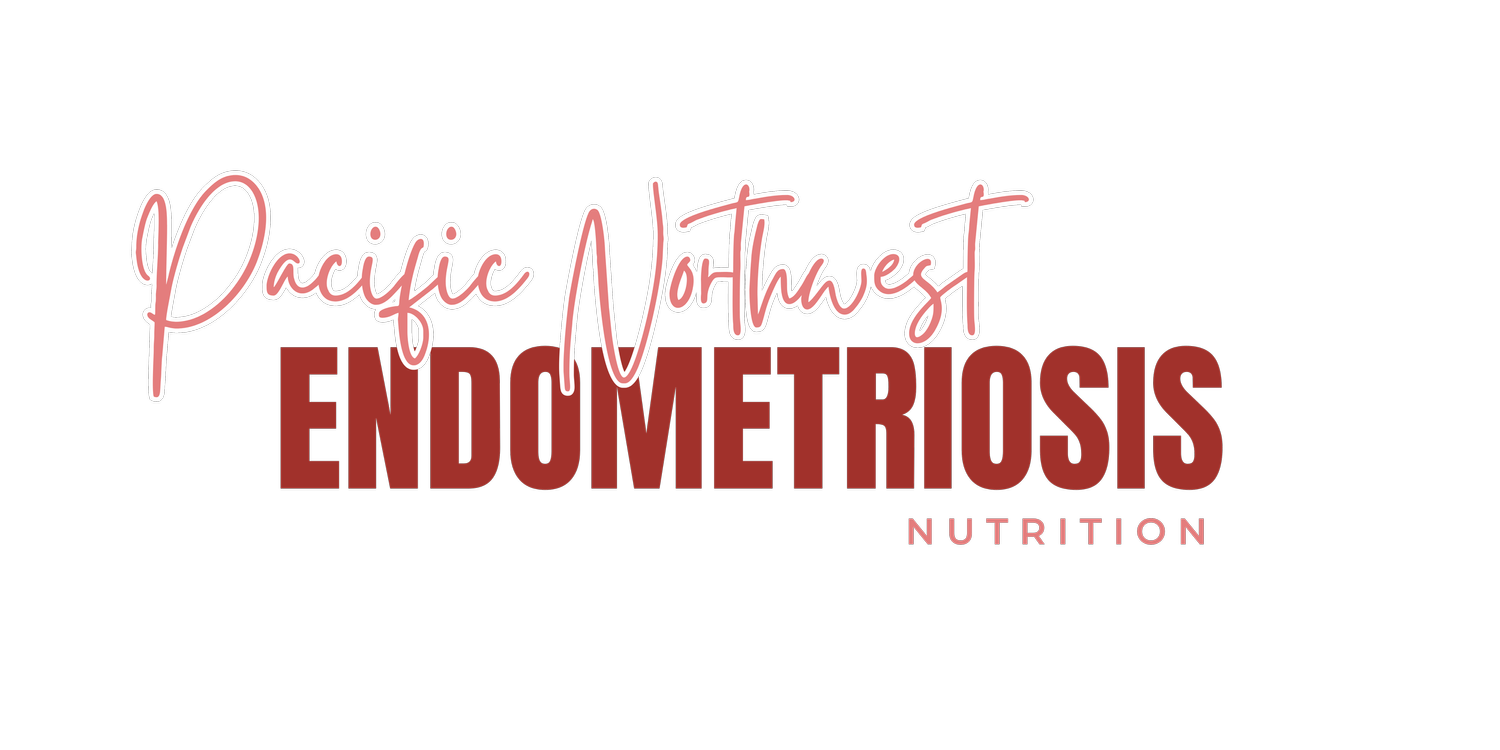The Fertility Diet Plan: Essential Nutrients and When to Start
Trying to conceive? You're not alone! As a Seattle-based fertility dietitian specializing in endometriosis and fertility, I see many amazing people embarking on this exciting journey. But amidst the whirlwind of emotions and preparations, questions often pop up: "What's the best diet for getting pregnant, and when should I start a fertility diet plan?"
The good news? You don't need a restrictive diet! Research suggests that adding nutrients prevalent in the Mediterranean diet is optimal for promoting fertility and a healthy pregnancy. If you are considering becoming pregnant soon, it's not too soon to start! The longer you nourish your body for fertility, the better your chances of improving egg and sperm quality and optimizing your chances for a healthy pregnancy.
Fueling Your Fertility with the Right Nutrients:
Carbohydrates: As our body's preferred energy source, carbohydrates are an essential nutrient for fertility. Eating carbohydrates consistently and focusing on whole grains and fibrous sources such as fruit and starchy can help provide sustained energy without spiking blood sugars. Limiting refined sugars and white bread/pasta/rice can prevent blood sugar spikes. There is no evidence that gluten should be avoided unless you are intolerant.
Fats: Fat is an essential part of the fertility diet plan. However, not all fats are created equal. Monounsaturated fats in olive oil, avocados, and nuts promote a hormonal balance that is potentially beneficial for fertility. Polyunsaturated fats, especially omega-3s found in fatty fish, chia seeds, and walnuts, also contribute positively, though the direct impact on fertility requires further exploration. On the other hand, there is a benefit to minimizing trans fats (found in processed foods) and saturated fats (excess animal products).
Proteins: Protein is vital for building a healthy baby and stabilizing blood sugars. Your allies on the fertility diet plan are lean protein sources like fish, poultry, beans, and lentils. Plant proteins like lentils and beans offer additional fiber benefits. Aim to have a protein source with each meal and snack.
Dairy: While the debate on high-fat versus low-fat dairy continues, moderation and quality remain key. Dairy is rich in protein, calcium, and minerals. Focusing on fermented products such as yogurt can be beneficial for gut health.
Fertility Boosting Micronutrients:
Iodine: Essential for fetal development and proper thyroid function, iodized salt, seafood seaweed, and dairy products should be included in your diet.
Folic Acid: This superstar nutrient can increase pregnancy success and is essential for fetal development. Include folate-rich leafy greens, poultry, eggs, and lentils in your meals. Taking a prenatal vitamin containing folic acid is recommended as soon as you are trying to conceive.
Vitamin D: Studies suggest a connection between Vitamin D levels and fertility. Fortified dairy/dairy alternatives and fatty fish like salmon and tuna are excellent sources on the fertility diet plan. Additional supplementation may be needed. Consult with your medical team or registered dietitian for advice.
Antioxidants: Brightly colored fruits and vegetables pack a powerful antioxidant punch, potentially improving fertility outcomes. Berries, leafy greens, spices, herbs, and tomatoes are great choices. The more color on your plate, the better!
Caffeine and Alcohol: High caffeine consumption may be associated with longer times to conception. Excessive alcohol intake may also impact fertility. Moderation is key with both on the fertility diet plan!
Eat Regularly for Optimal Fertility
Maintaining balanced blood sugar levels is as crucial as the nutrients themselves. Try to avoid waiting longer than 4-5 hours between meals. This ensures you get enough calories to nourish your body for optimal fertility.
Sample Menu for Fertility:
This fertility diet plan offers a varied and satisfying way to nourish your body and support your fertility journey and healthy pregnancy.
Breakfast:
Greek yogurt or cottage cheese with berries, walnuts, and a sprinkle of granola.
Oatmeal cooked in nut milk with berries, ground flaxseed, collagen peptides, and a dollop of peanut butter
Whole grain toast topped with avocado, hemp seeds, and eggs
Smoothie with protein powder, milk, 1/2 banana, ground flaxseed, and nut butter
Find out more about the importance of breakfast for fertility and pregnancy here.
Lunch:
Whole-wheat pita bread stuffed with grilled chicken, hummus, chopped vegetables, and a drizzle of olive oil.
Lentil soup and an apple
Salad greens topped with salmon, feta, garbanzo beans, and brown rice
Tuna salad sandwich with a side of carrots, cucumber, and cherry tomatoes
Need more lunch inspiration? Find out how to build a better lunch bowl here.
Dinner:
Salmon with roasted Brussels sprouts and quinoa
Sweet potato and black bean tacos topped with avocados and cilantro
Turkey chili topped with cheese and onion
Whole wheat spaghetti topped with marinara meat sauce and a side salad
Balanced Snacks
For snack ideas, check out my free, high-protein snack guide.
Looking for more personalized guidance? Contact me, your Seattle fertility dietitian, today!
Focusing on whole foods, healthy fats, and essential nutrients can be your ally on your path to parenthood. I'm here to guide you on this journey. As a Seattle-based fertility dietitian, I can create a personalized plan to optimize your diet and support your health goals. Let's ditch the restrictive diets and embrace a delicious approach to fertility success!
I am licensed in several states and accept most commercial insurance plans.
Source: Skoracka K, Ratajczak AE, Rychter AM, Dobrowolska A, Krela-Kaźmierczak I. Female Fertility and the Nutritional Approach: The Most Essential Aspects. Adv Nutr. 2021 Dec 1;12(6):2372-2386. doi: 10.1093/advances/nmab068. PMID: 34139003; PMCID: PMC8634384.
This blog is intended to educate and inform and is not medical advice or medical nutrition therapy.


